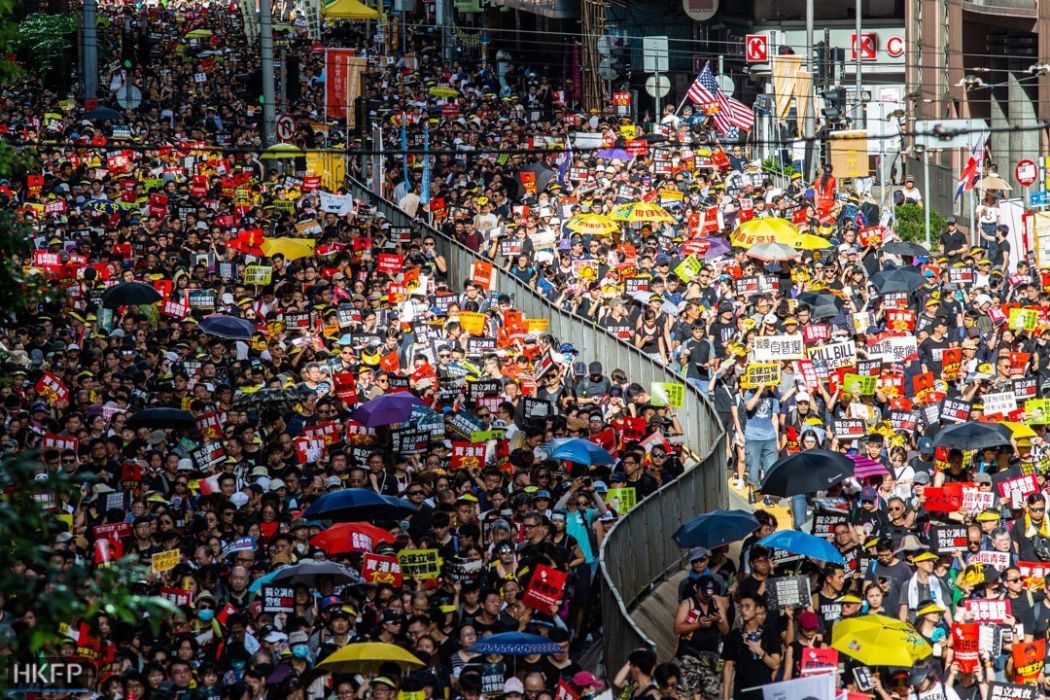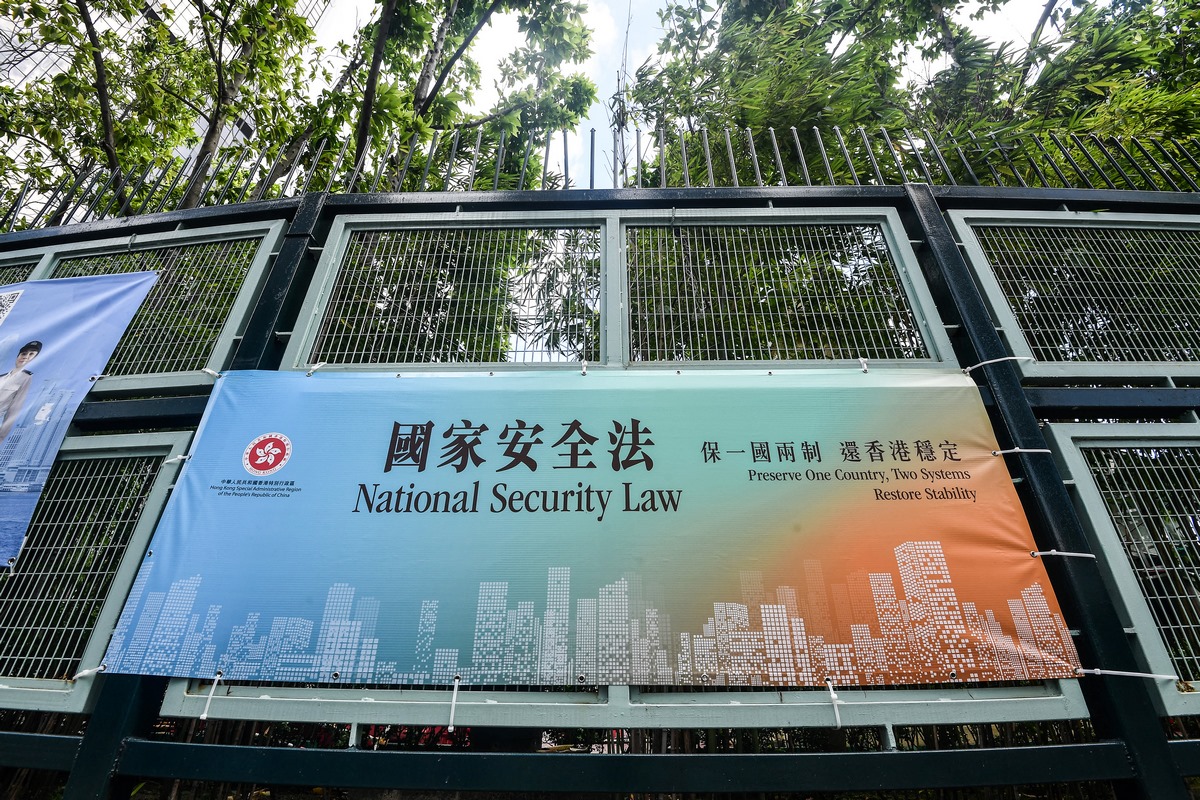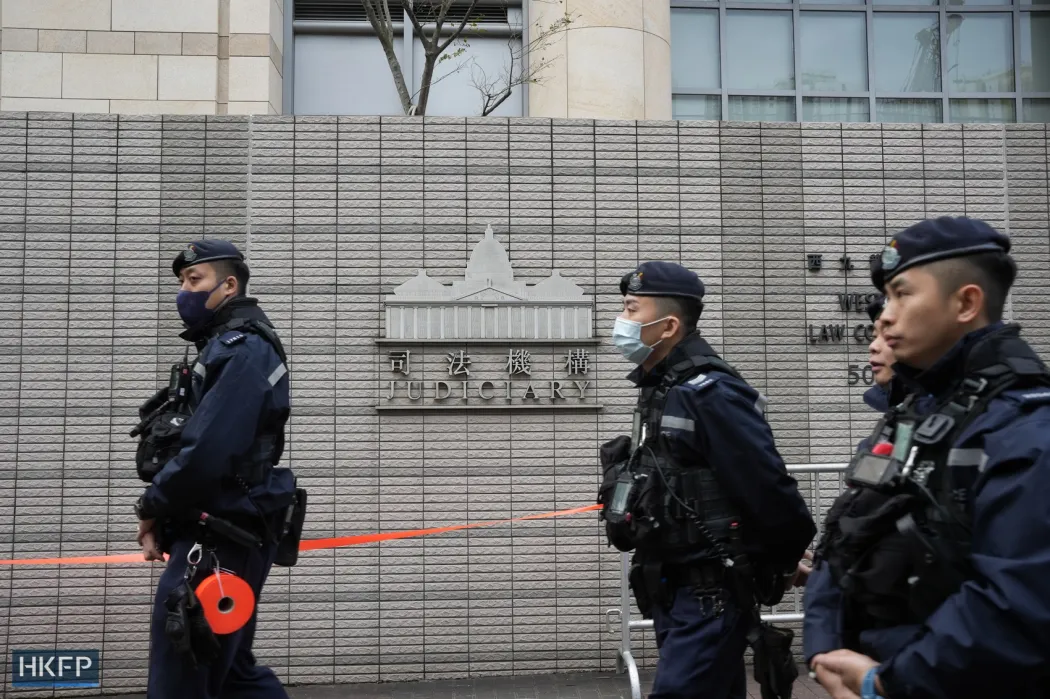Hong Kong’s rights and freedoms are more safeguarded since Beijing imposed a national security law, the city’s government has told the United Nations (UN) ahead of a routine human rights review in January.

In a three-page report to the UN Human Rights Council published on Saturday, authorities said Hong Kong had taken a “major turn from chaos to governance” after the security legislation and measures ensuring only “patriots” can run in elections were implemented.
“Hong Kong society has put the volatile situation behind it, and the rights and freedoms of Hong Kong residents are better protected in a safer and more orderly environment,” the report read.
The submission to the UN came as the international body’s Human Rights Council is set to hold its evaluation of China’s human rights records in a month’s time. The Universal Periodic Review mechanism requires UN member states to undergo a peer review of its human rights records every 4.5 years, according to the UN website.
China’s review will take place on January 24, and will include discussions about Hong Kong and Macau.

Besides the government, the UN also receives submission from civil society groups. A number of Hong Kong-based groups that made submissions ahead of the review in 2018, however, have disbanded in the wake of the national security law, including the Civil Human Rights Front, the China Human Rights Lawyers Concern Group, and the Hong Kong Alliance in Support of Patriotic Democratic Movements of China.
According to a UN document, among the groups that submitted reports on Hong Kong for the review next month were overseas pro-democracy organisations including the UK-based Hongkongers in Britain and the US-based Hong Kong Democracy Council.
Pro-establishment groups in Hong Kong, such as the Hong Kong and Mainland Legal Profession Association and the Kowloon Women’s Organisations Federation also made submissions, as did two committees – representing women’s affairs and labour education – under pro-Beijing party The Federation of Hong Kong and Kowloon Labour Unions.
Beijing imposed a national security law on Hong Kong in June 2020 – criminalising secession, subversion, foreign collusion and terrorism – after a controversial extradition bill sparked protests and unrest in 2019. Offenders face up to life imprisonment.

Dozens of civil society groups have shut down since then, while independent media outlets have also closed following police raids and the arrests of top executives.
During a review by the UN Human Rights Committee last year, UN experts urged the government to repeal the security law, citing its “overly broad interpretation” and rights violations.
In response, the government said in a statement that it “strongly objects” to the rights committee’s “unfair criticisms,” maintaining that the law had restored stability and security to the city.
‘Freedom of expression’
In its report to the UN, the Hong Kong government said the city “protects the freedoms of press and expression of Hong Kong residents.”
“The media may exercise their freedom of expression in accordance with the law, and comment on or even criticize the work of the HKSAR government,” the report read, adding that the number of media organisations registered with the government had increased compared with 2018.
The comments came as the national security trial of Jimmy Lai, the founder of defunct pro-democracy newspaper Apple Daily, got underway after a year-long delay. Lai has been charged with two counts of conspiracy to collude with foreign powers, and one charge of publishing seditious publications.

The city has plummeted down press freedom rankings, placing 140th out of 180 territories in international media watchdog Reporters Without Borders (RSF)’s list this year. Ten years ago, Hong Kong was ranked 58th.
Authorities also said in the report that Hong Kong residents enjoy “freedom of peaceful assembly and association,” as well as judicial independence in its courts.
Since the national security law was enacted in 2020, while Covid curbs remained in place, protests have been few and far between, with those allowed to go ahead subject to strict rules by police. During a protest in March, the first against a government policy since pandemic measured were lifted, demonstrators were made to wear number tags and hold up their own cordon.
Ahead of the newly restricted District Council elections earlier this month, members of pro-democracy group the League of Social Democrats were arrested on their way to the demonstration, while veteran activist Koo Sze-yiu was arrested over a plan to protest against the “patriots-only” poll.
Hong Kong officials also appeared before UN experts in February, during a session with the UN Committee on Economic, Social and Cultural Rights. At the meeting, the UN experts questioned the city’s officials on a wide range of topics including academic freedom and bail conditions for those charged under the security law.
Support HKFP | Policies & Ethics | Error/typo? | Contact Us | Newsletter | Transparency & Annual Report | Apps
Help safeguard press freedom & keep HKFP free for all readers by supporting our team
























